OpenAI Joins the “Deep Research” Trio
A quick look at three similar agents from Google, Genspark, and OpenAI.
TL;DR
OpenAI just released a “Deep Research” agent that can autonomously research and reason about complex topics. It’s the third “Deep Research” tool in less than two months, but it’s arguably the most capable.
What is it?
OpenAI describes it as “an agent that uses reasoning to synthesize large amounts of online information and complete multi-step research tasks.”
Basically, you ask Deep Research a question or give it a research task, and it sets off on its own to create a plan, read through relevant literature, explore different research avenues based on its findings, and seek additional information to produce the final report.
By early accounts it’s quite impressive, offering a “near PhD-level analysis” according to Ethan Mollick.
It’s also, confusingly, the third such agent with exactly the same name.
Here’s the timeline:
December 11, 2024: Google released a “Deep Research” assistant for paying Gemini Advanced users.
January 27, 2025: Genspark launched a “Deep Research” agent with similar capabilities.
February 2, 2025: OpenAI announced its own “Deep Research” agent, because naming stuff is hard, you guys!
But while the three tools are conceptually similar, they aren’t equally capable or equally accessible.
Let’s take a quick look at each of them and your options.
How do you use it?
In order from most to least expensive…
1. OpenAI’s deep research
Right now, OpenAI’s “deep research” is available exclusively to people paying $200 per month for a ChatGPT Pro account. Plus and Teams accounts might have to wait a month before trying it.
If you’re one of the fancy people with a Pro account, you’ll want to toggle the “Deep research” button when entering your query:
Ethan Mollick says that OpenAI’s deep research agent truly appears to process and reason about the information, pursue supporting studies, and dig deeper when necessary on its own. It uses a version of OpenAI’s upcoming, most powerful o3 reasoning model to do this.
If you can afford it, it’s the best independent AI research agent currently available.
2. Google’s deep research
Google’s version has been out the longest and costs $19.99 per month, but you can try it for free with a one-month trial of Gemini Advanced.
To use it, select “1.5 Pro with Deep Research” from the model dropdown:
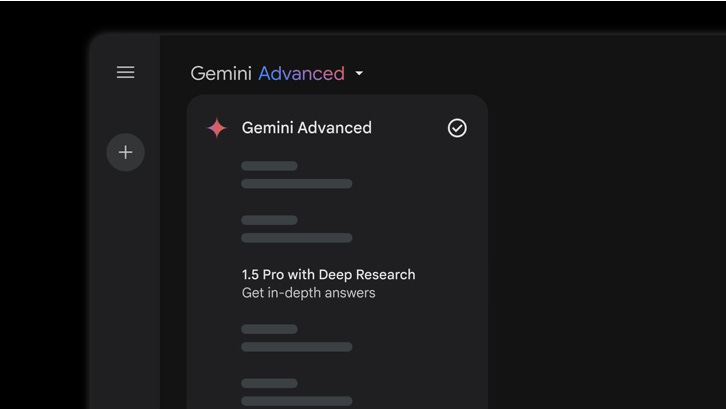
Google’s “Deep Research” is great at quickly scanning lots of sites but appears to have less innate intelligence.
Here’s the summary from Ethan Mollick’s article:
Google surfaces far more citations, but they are often a mix of websites of varying quality (the lack of access to paywalled information and books hurts all of these agents). It appears to gather documents all at once, as opposed to the curiosity-driven discovery of OpenAI’s researcher agent. And, because (as of now) this is powered by the non-reasoning, older Gemini 1.5 model, the overall summary is much more surface-level, though still solid and apparently error-free. It is like a very good undergraduate product.
And then there’s the free version for the rest of us…
3. Genspark’s deep research
Two weeks ago, I looked at Genspark’s image generation agent.
You find the new “Deep Research” agent on the same Genspark Agents page:
After you give “Deep Research” a task, it engages GPT-4o, Claude 3.5 Sonnet, and Gemini 1.5 Pro to create a research plan:
You can then edit or approve the plan, at which point the agent independently crawls and summarizes hundreds of sources and sends a report to your inbox. This takes around 20 minutes.
Genspark reports contain mind maps and comparison tables for an easy overview:
If I’m honest, the research quality here is a mixed bag.
In my example, Genspark started strong with the OpenAI and Google examples but then cast a wider net to include DeepSeek, Claude, and other entries that didn’t have “Deep Research” in their name. You can view the final report for yourself.
But as it stands, Genspark’s deep research agent is the only free version on the market. Everyone gets a few uses for free, and you can also use my invite link for a free month of Genspark Plus.
Why should you care?
We appear to be entering an era of narrow yet actually useful agents.
Unlike the hypothetical “do anything” browser-using AI agents, which remain clunky, error-prone, and often require the user’s active involvement,1 deep research agents are capable of completing the task on their own.
Crawling and summarizing information on the Internet lends itself quite well to this kind of fire-and-forget agentic approach.
Note that “Deep Research” agents are not immune to hallucinations. You must still exercise the “trust but verify” approach to any information they gather and conclusions they reach. But even in their current state, they can meaningfully condense hours and days of research into a much shorter timeframe.
As more powerful reasoning models become mainstream, deep research agents are only going to get better.
So I strongly suggest you test drive whichever existing version you can afford.
This way, you’ll be better prepared for what’s soon coming.
🫵 Over to you…
Have you already used any of these Deep Research agents? What’s been your impression? I’d love to hear from all of you Mr. and Mrs. Money Bags who have tried the expensive OpenAI version.
Leave a comment or drop me a line at whytryai@substack.com.
Hot Takes like the above are occasional timely posts that focus on fast-moving news and releases, in addition to my regular Thursday and Sunday columns.
If Hot Takes aren’t your cup of tea, simply go to your account at www.whytryai.com/account and toggle the “Notifications” settings accordingly:
See Anthropic’s “Computer Use” and OpenAI’s “Operator.”





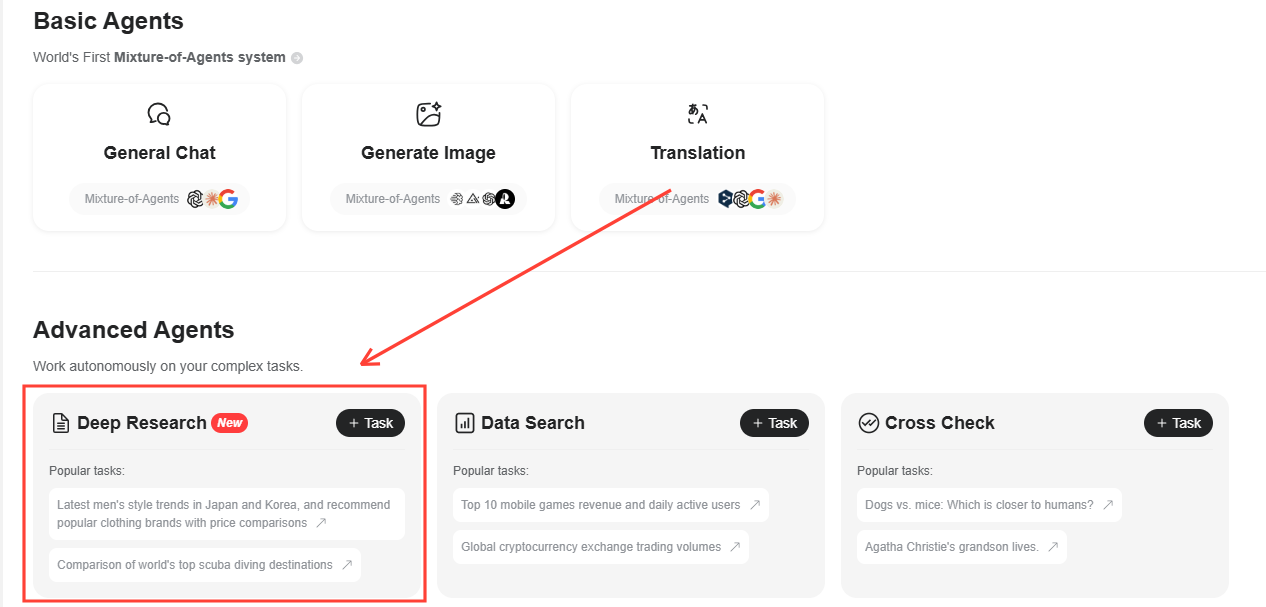
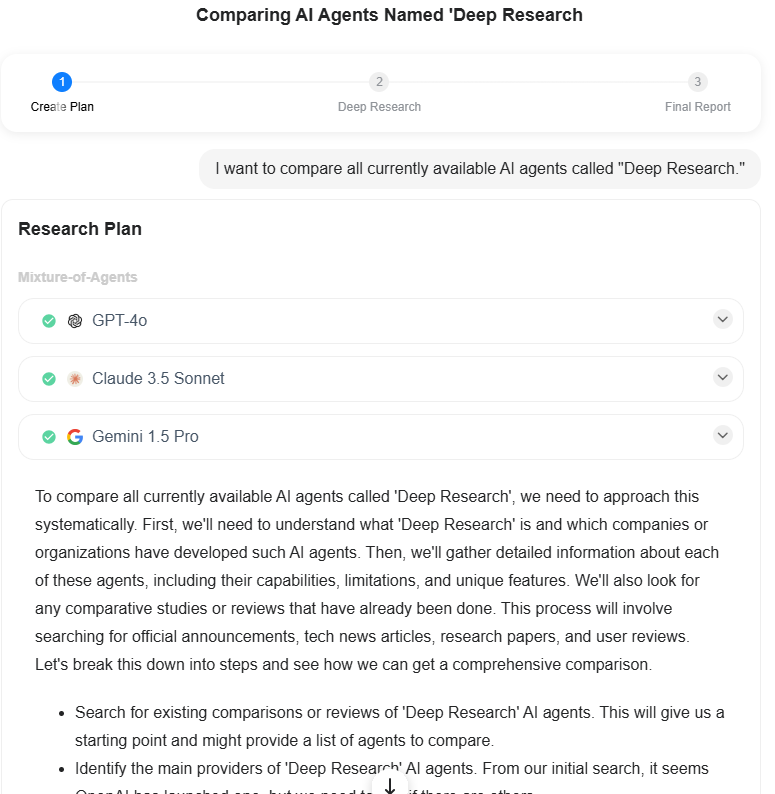
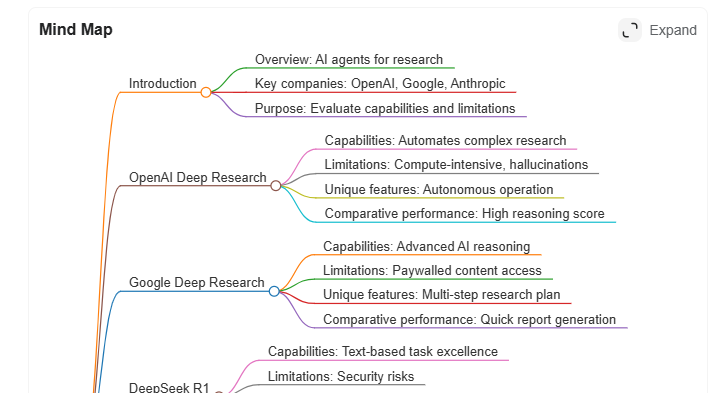
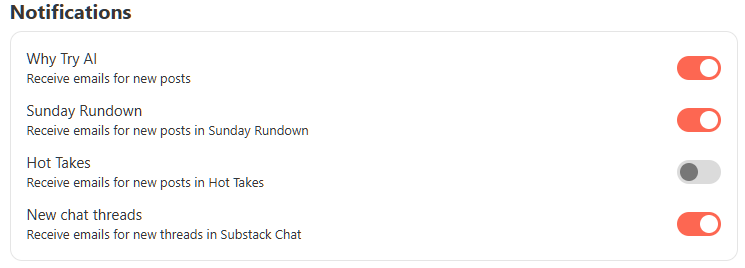
There is also a Research agent at You.com, an LLMs aggregator. It does more or less the same thing as you described OpenAI (can't say anything about comparative quality, but I was not flabbergasted with You.com one. It was okay though.)
I really like the name "Deep Research." Let's start a company!